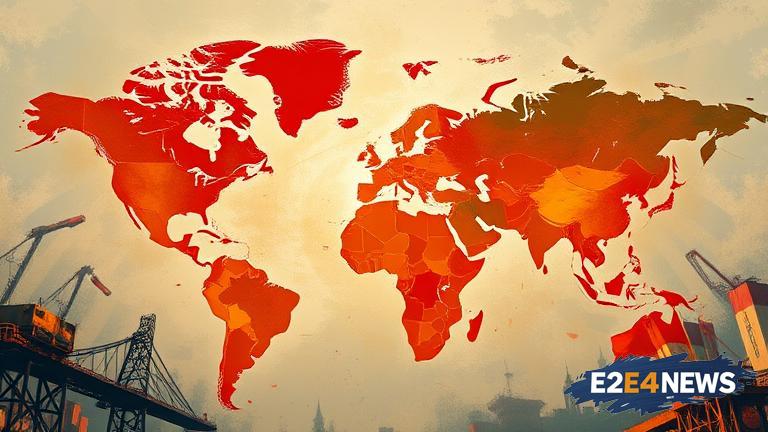The United States, under the leadership of President Donald Trump, has been at the forefront of a global trade war, with the latest tariff threats sparking widespread concerns. In a recent statement, Trump warned that the US would impose new tariffs on countries that do not comply with American trade policies. This move has been met with criticism from global leaders, who argue that such actions would lead to a decline in international trade and economic growth. The European Union, China, and other major trading partners have expressed their disappointment and frustration with the US stance. The tariffs, which would affect a wide range of products, including steel, aluminum, and automobiles, have been deemed unfair and protectionist by many. The World Trade Organization (WTO) has also weighed in on the issue, warning that the tariffs would undermine the global trading system. As the trade tensions escalate, many countries are bracing themselves for the potential consequences, including higher prices, reduced exports, and decreased economic growth. The US Chamber of Commerce has estimated that the tariffs could lead to the loss of hundreds of thousands of jobs and billions of dollars in economic output. The situation has also sparked concerns about the potential for retaliation from other countries, which could lead to a full-blown trade war. Despite the criticism, Trump remains defiant, arguing that the tariffs are necessary to protect American industries and workers. However, many experts argue that the tariffs would ultimately harm the US economy, as well as the global economy, by reducing trade and increasing prices. The trade tensions have also sparked concerns about the potential impact on the global economy, with many predicting a decline in economic growth and an increase in unemployment. The situation has also led to a decline in investor confidence, with many investors pulling out of the stock market due to the uncertainty surrounding the trade tensions. As the situation continues to unfold, many are calling for calm and diplomacy, arguing that a negotiated settlement is the best way to resolve the trade disputes. The US and its trading partners must work together to find a solution that benefits all parties involved, rather than resorting to protectionist policies that would harm the global economy. The trade tensions have also sparked concerns about the potential impact on the environment, with many arguing that the tariffs would lead to an increase in carbon emissions and pollution. The situation has also led to a decline in public trust, with many questioning the motives behind the US trade policies. Despite the challenges, many remain optimistic that a resolution can be found, and that the global economy can continue to grow and prosper. The US and its trading partners must work together to find a solution that promotes free and fair trade, rather than resorting to protectionist policies that would harm the global economy. The trade tensions have also sparked concerns about the potential impact on the global supply chain, with many arguing that the tariffs would lead to disruptions and delays. The situation has also led to a decline in business confidence, with many companies pulling out of investments due to the uncertainty surrounding the trade tensions. As the situation continues to unfold, many are calling for a comprehensive review of the US trade policies, arguing that a more nuanced approach is needed to address the complex issues surrounding global trade.
